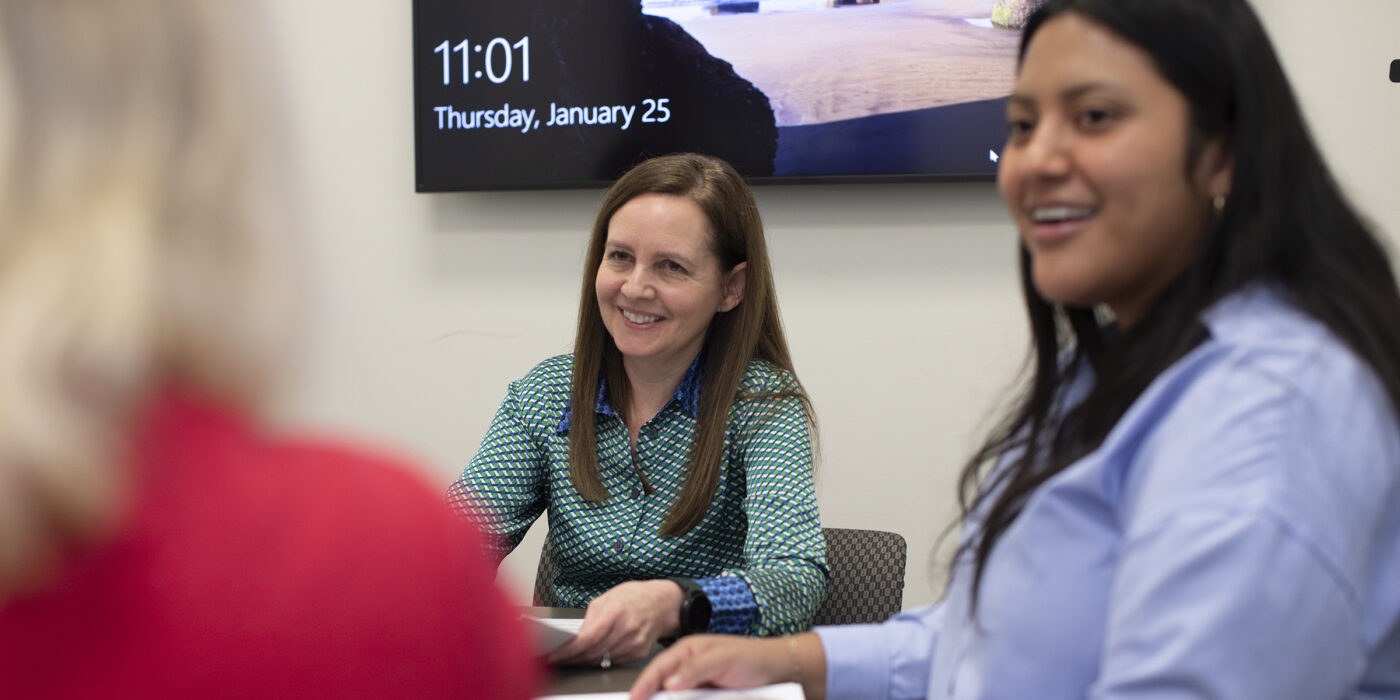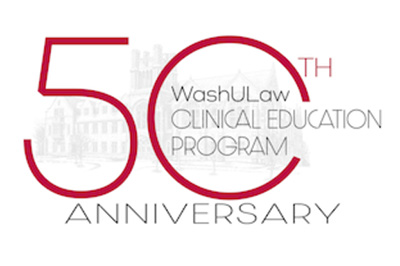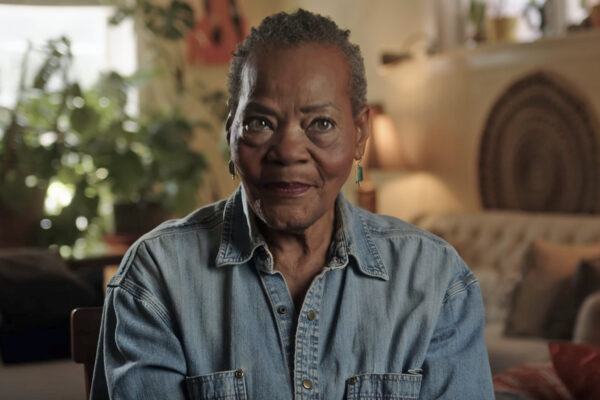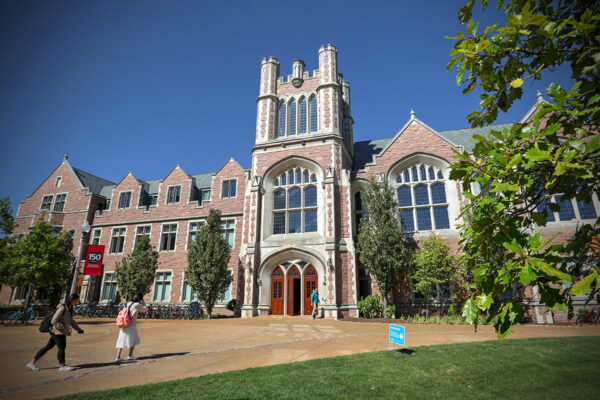Over the years, thousands of students at Washington University in St. Louis School of Law have had access to real-world experience and a jump-start to their career through participation in the Clinical Education Program. Entering its sixth decade, the program remains one of the top reasons students from all over the world apply here.
“WashULaw was one of the earlier law schools in the country to incorporate clinical legal education into its curriculum and has been a national leader in clinical legal education since its origins in 1973,” says Karen Tokarz, the Charles Nagel Professor of Public Interest Law & Policy and former director of the clinical program. “It also was one of the first schools in the country to adopt a clinic guarantee for all students.”
Today, more than 90% of all students enroll in a clinic or externship, and almost 50% take two or more.
“Building on five decades of clinical education, WashULaw’s Clinical Education Program is considered among the best in the country,” says Tokarz, who has taught at the School of Law since 1980 and also directs the Civil Rights & Mediation Clinic. “The program is continuously innovating to meet both the professional practice needs of today’s students and the community’s needs for legal services.”
Humble beginnings
Launched in 1973 as the “Introductory Clinic,” the program began as a humble storefront on Delmar Boulevard. Its educational goals were many: to teach students the skills and values that define the legal profession; to prepare more competent practitioners; to allow students to experience law in context and to provide depth to their theoretical studies; and to help students understand their obligations to the poor and their responsibility to provide high quality, pro bono legal services to the community.
The storefront office opened in conjunction with Legal Services of Eastern Missouri, with whom the program still partners. Shortly thereafter, two additional courses were offered with externship placements: the “Advanced Clinic” and “Judicial Clerkship.” Initially, between 40 and 50 students a year worked with lawyers at the clinic office; with the Missouri Public Defender System; and as law clerks for state and federal judges.
The Clinical Education Program has since expanded to include 12 clinics and seven externship opportunities. In fall 2024, it will add a 13th, the Veterans Law Clinic.
“Clinical education is incredibly important for a variety of reasons,” says Sarah Narkiewicz, associate dean for clinical education at the School of Law and director of the Low Income Taxpayer Clinic.
“Unlike traditional law school classes that teach students how to read cases and think like a lawyer, clinical education teaches them how to practice,” Narkiewicz says. “In an externship setting, law students are assisting licensed attorneys in a variety of real-world legal settings both in St. Louis and around the world. In a clinic, they’re preventing or solving the problems of real-world clients. They’re learning many important practice skills that they simply couldn’t get elsewhere in law school.
“Clinical experiences make students both more employable and more practice-ready once employed. It also teaches them the importance of pro bono work and its impact on the greater community.”
And students get experience far beyond the classroom. “As the daughter of two Central American immigrants, I was taught to help those in need to the best of my ability,” says Dinora Esperanza Orozco Vasquez, a third-year law student who has participated in the Immigration Law Clinic and the Low Income Taxpayer Clinic.
“Through the Clinical Education Program, I have learned how to interview clients, how to be more empathetic and how to walk them through a very stressful process,” Esperanza Orozco Vasquez adds. “Further, I’ve been able to take these skills and use them in other areas of my life.”
Community impact
The law school’s clinics are making a major difference in the St. Louis community.
“We’re providing services that our clients simply wouldn’t be able to access elsewhere in the community,” Narkiewicz says. “While there is a right to a public defender for criminal offenses, there is no right to free legal representation in civil matters. Yet, many civil matters can heavily impact a person’s life. We provide representation in these matters for free.
“Clinical experiences make students both more employable and more practice-ready once employed. It also teaches them the importance of pro bono work and its impact on the greater community.”
Sarah Narkiewicz
Narkiewicz points out that through the clinics, students are able to help immigrants, those struggling with environmental justice issues, aspiring inventors and entrepreneurs, clients with First Amendment claims, and low income taxpayers in disputes with the government. “Our clinic students also make a difference in the criminal justice space as well,” she says. “For example, our students assist with public defense in St. Louis County under Peter Joy, the Henry Hitchcock Professor of Law. We also assist defendants in appellate proceedings, work with clients that have been wrongfully convicted and assist prosecutors.
“We are truly in St. Louis for St. Louis.”
An example of some of the great work done by clinic students: Students and faculty working in the Low-Income Taxpayer Clinic were able to help a St. Louis woman reduce her tax debt and keep her house.
The woman, referred to as “Katie,” suffered catastrophic medical setbacks and was forced to leave her longtime career. Without the ability to work, she withdrew all her retirement funds to purchase a home. Unknowingly, she failed to have enough withheld from her distribution and ended up owing a large sum of money for taxes.
“Katie had a lien placed against her home and was in danger of getting her Social Security garnished,” Narkiewicz says. “We helped Katie by creating an offer in compromise. We were able to reduce her debt from over $65,000 to $1.”
In addition, for the past two summers, Narkiewicz has operated a pop-up estate planning clinic. “This clinic is strictly volunteer, using volunteer students and attorneys, so we can’t handle as many cases as I would like,” she says. “However, we know there is a great need in the community for this type of work and would love to make this a permanent clinic if we had sufficient funding.”
Giving voice to the voiceless
Alumna Katie Herbert Meyer, JD ’03, was so influenced by her clinical experience, she decided to make it a career.
“I entered law school with a desire to become a lawyer who gives voice to the voiceless. I didn’t know exactly how I would do that or what type of law I would practice,” says Meyer, associate professor of practice. “Participating in two clinics during law school — one in St. Louis and one in Washington, D.C. — greatly helped me cement my commitment to public interest law and hone my practice area. Clinics influenced me so much that, early in my career, I was a field supervisor for clinic students, and today I direct the law school’s Immigration Law Clinic.”
“The clinics provided some of the most rewarding and formative experiences of law school,” says Amy Dygert Stansfield, JD ’18, who is an associate at Thompson Coburn LLP. “In terms of practical skills, they taught me how to advocate on behalf of clients before a judge or a government agency, how to interview clients, and how to manage obligations of multiple cases at a time. Further, the clinics instilled in me and my peers a firm appreciation of our responsibilities as attorneys to our clients and our community.”
What’s in store for the next 50 years? “The future of clinical education at WashU is bright,” Narkiewicz says. “We are strong believers in its importance, and the NextGen Bar Exam, which will debut in 2026, recognizes the need for foundational lawyering skills, many of which are taught through clinical legal education. I hope that we will add more clinics in the future and continue to excel with our existing offerings. There is both a great deal of student demand and a great deal of community need.”





Comments and respectful dialogue are encouraged, but content will be moderated. Please, no personal attacks, obscenity or profanity, selling of commercial products, or endorsements of political candidates or positions. We reserve the right to remove any inappropriate comments. We also cannot address individual medical concerns or provide medical advice in this forum.